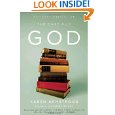 In my last post (and also here) I pointed out the true context of several of Armstrong’s sources, demonstrating that she is actually just misrepresenting them. Armstrong fares no better when it comes to science and, in particular, Popper.
In my last post (and also here) I pointed out the true context of several of Armstrong’s sources, demonstrating that she is actually just misrepresenting them. Armstrong fares no better when it comes to science and, in particular, Popper.
While Kuhn does seem share her views that science does not find an objective reality, this is the very point of Kuhn where Kuhn has been shown to have gotten it wrong. Though I am a big fan of Kuhn, his theory explains far less than Popper’s, and so known to be the inferior theory. (For discussion, see here, here, and particularly here.) Armstrong supports Kuhn on precisely his wrong conclusions.
Science makes progress precisely because it moves from one paradigm to the next, each one having greater verisimilitude then the last. Science is homing in on objective reality, even if perhaps it will never find it precisely.
And, contrary to Armstrong’s uses of Popper, this was Popper’s whole point! Continue reading
